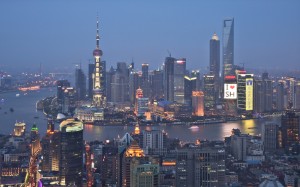 After decades of rapid economic expansion, China could be facing its first downturn in economic growth as the country’s growing credit bubble begins to pop. Fitch, one of the world’s top credit ratings agencies, claims that China’s credit bubble is ‘unlike anything in modern history’ and could become a huge issue for the country.
After decades of rapid economic expansion, China could be facing its first downturn in economic growth as the country’s growing credit bubble begins to pop. Fitch, one of the world’s top credit ratings agencies, claims that China’s credit bubble is ‘unlike anything in modern history’ and could become a huge issue for the country.
China has been one of the world’s fastest-growing large economies for decades, with the East Asian nation’s immense manufacturing sector helping it to achieve massive levels of growth. The economic development has produced a ‘new rich’ class that is massively important to the Chinese economy, as well as a growing middle class.
The total amount of credit in China has grown from $9 trillion to $23 trillion in just over five years. Economists believe that the credit bubble has been created as many of China’s growing middle class purchase property and increase their living quality using borrowed money.
Credit growth in china has outstripped GDP for several years, causing concern for a nation that was formerly focused on economic development through manufacturing and production. Large investments in infrastructure have been financed using credit in an effort to improve the Chinese economy, often at serious public expense.
Experts believe that China’s economic growth has largely depended on credit, which is a ‘failed model’ that had previously been observed in Japan. Japan’s credit-fuelled 1980s asset bubble resulted in large-scale economic deflation that lasted for several years and a ‘lost decade’ for the Japanese economy during the 1990s.
Other issues include a lack of transparency in the Chinese banking system. China is home to a large ‘shadow banking’ system where banks frequently do now know the end borrowers of their loans, making the likelihood of default far greater than many previously expected.





